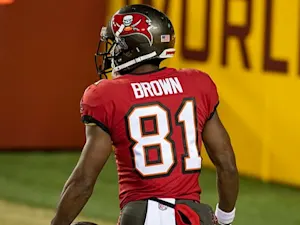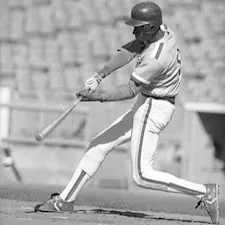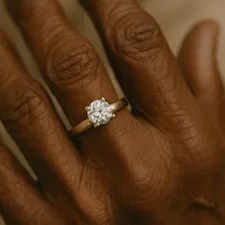
Dick Cheney Dies at 84
Former Vice President of the United States Dick Cheney, presenting former United States Secretary of Defense Donald Rumsfeld with the "Defender of the Constitution Award," at CPAC 2011 in Washington, D.C. Photo courtesy of Gage Skidmore under CC BY-SA 2.0.
When former Vice President Dick Cheney passed away at age 84, it closed the chapter on a political life that was as towering as it was controversial. Cheney's death from complications of pneumonia and vascular disease, surrounded by family, offers a rare moment to reflect on a man who rose from Wyoming congressman to arguably the most influential vice president in American history under George W. Bush. His legacy is a complex tapestry woven with threads of national security, war, and raw political power that still sparks fierce debate today.
From Wyoming Roots to Washington Powerhouse
Born in Lincoln, Nebraska, and raised in Casper, Wyoming, Richard Bruce Cheney's journey to the pinnacle of American politics was marked by grit and relentless ambition. After a brief stint at Yale, he returned to Wyoming, where he earned his degrees and rekindled a romance with his high school sweetheart, Lynne, whom he married in 1964. Cheney's political career began in earnest in 1969 during the Nixon administration, when he cut his teeth in various roles before becoming the youngest White House chief of staff at age 34 under President Gerald Ford.
Cheney's time in Congress was defined by staunch conservatism and leadership roles that included chairing the House Republican Conference and serving as minority whip. Despite health setbacks, including multiple heart attacks, he maintained a commanding presence in Washington. His tenure as Secretary of Defense under George H.W. Bush saw him orchestrate major military campaigns like Operation Desert Storm, earning him the Presidential Medal of Freedom.
The Most Powerful Vice President in History
Cheney's vice presidency under George W. Bush redefined the office. Far from the traditional role of a ceremonial second-in-command, Cheney wielded unprecedented influence behind the scenes. He was the architect of many of the administration's most consequential policies, especially in the aftermath of the September 11 attacks. Cheney's role in shaping the "war on terror" and the decision to invade Iraq cemented his reputation as a hard-charging hawk who operated with a Machiavellian edge.
Cheney was known for his ability to navigate Washington's corridors with a mix of charm and intimidation, earning him nicknames like "the Darth Vader of the administration," as reported by the Associated Press. His influence extended into energy policy, national security, and presidential authority, often pushing the boundaries of executive power. Yet, this same forcefulness made him a polarizing figure, admired by conservatives for his resolve and criticized by others for his role in controversial policies and the Iraq War's fallout.
A Legacy Marked by War and Controversy
Cheney's legacy is inseparable from the Iraq War, a conflict that remains deeply divisive. He was a vocal advocate for the invasion, asserting links between Saddam Hussein's regime and the 9/11 attacks that were later disproven. The war's aftermath unleashed years of violence, sectarian conflict, and the rise of extremist groups, leaving a scar on the Middle East and American foreign policy. Critics, including Iraqi civilians and progressive commentators, have condemned Cheney for the human cost and destabilization his policies wrought.
Despite the backlash, Cheney remained steadfast in his convictions, embodying a brand of conservative leadership that valued strength and security above all. His tenure also saw the expansion of surveillance and detention programs, which sparked debates about civil liberties and government overreach. These policies continue to influence discussions about the balance between freedom and security in America.
The Man Behind the Power
Away from the political spotlight, Cheney was a family man devoted to his wife Lynne and their two daughters, Liz and Mary. His family life was marked by both traditional values and moments of progressive acceptance. Cheney supported his daughter Mary's marriage equality advocacy long before it gained widespread acceptance, reflecting a personal side often overshadowed by his public persona.
Cheney's health struggles were a constant companion throughout his life. Surviving five heart attacks and receiving a heart transplant, he often spoke about living on borrowed time. Yet, he faced these challenges with a characteristic stoicism, continuing to engage in political discourse and public life well after leaving office.
Divided Tributes and Lasting Impact
The reactions to Cheney's death reveal the deep divisions his life and career inspired. Former President George W. Bush praised him as a "calm and steady presence" and a patriot who served with integrity and intelligence, as reported by The Guardian. Republican leaders from Wyoming and beyond echoed these sentiments, highlighting his leadership in domestic and foreign policy.
Yet, voices from the left and progressive commentators condemned Cheney's legacy as one of destruction and suffering. Critics pointed to the millions killed and displaced in Iraq and accused him of evading accountability for policies they view as catastrophic. Even some far-right figures expressed disdain, framing Cheney as a symbol of an old political order fading away.
Cheney's daughter Liz, a prominent Republican figure herself, carried forward his political legacy with her own brand of outspoken conservatism, often clashing with President Donald Trump. The family's public profile remains a testament to Cheney's enduring influence on American politics.
A Final Reflection
Dick Cheney's death marks the end of an era defined by bold, sometimes ruthless, political maneuvering and a vision of America shaped by strength and security. His life story reads like a political thriller, full of power plays, dramatic moments, and enduring controversies. Whether remembered as a patriot or a pariah, Cheney's impact on the United States is undeniable.
As the nation reflects on his passing, the debate over his legacy will continue to unfold. Cheney left a footprint that will be studied, debated, and felt for generations to come.
References: Dick Cheney Dead: 46th U.S. Vice President Was 84 | Former Vice President Dick Cheney dies at 84 | Dick Cheney remains divisive in death, drawing tributes and condemnation | Dick Cheney
























